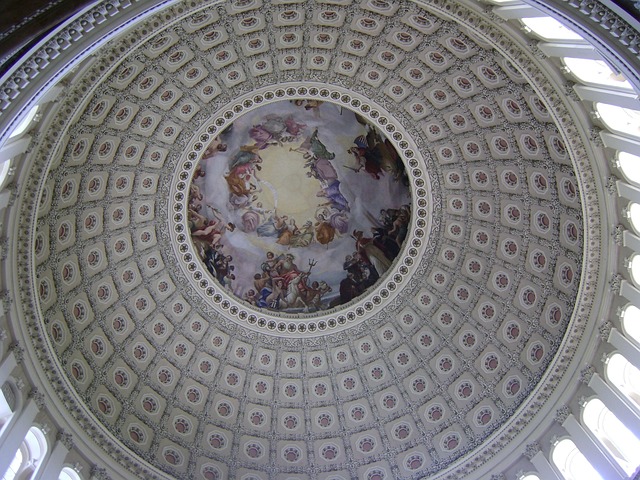SEC delays decision on XRP, Solana, Litecoin, Dogecoin ETFs
The US Securities and Exchange Commission has delayed its decision to approve several XRP, Solana, Litecoin and Dogecoin exchange-traded funds.In a slew of filings on March 11, the agency said it has “designated a longer period” to decide on the proposed rule changes that would allow the ETFs to proceed.Among the affected ETFs are Grayscale’s XRP (XRP) and Cboe BZX Exchange’s spot Solana (SOL) ETF filings, with the decisions on them pushed until May.The SEC has delayed making a decision to approve several altcoin ETFs. Source: SECBloomberg ETF analyst James Seyffart said in a March 11 X post that while the SEC just “punted on a bunch of altcoin ETF filings,” he didn’t see it as a cause for concern. “It’s expected, as this is standard procedure.” He added that US President Donald Trump’s pick to chair the SEC, Paul Atkins, “hasn’t even been confirmed yet.”“This doesn’t change our (relatively high) odds of approval. Also note that the final deadlines aren’t until October,” Seyffart said.Source: Samuel MaverickFellow Bloomberg ETF analyst Eric Balchunas also chimed in, saying that “everything [is] delayed,” including ETFs featuring Ether (ETH) staking and in-kind redemptions.Un early December, Trump picked pro-crypto businessman and former SEC Commissioner Atkins to be the agency’s next chair. However, congressional confirmation hearings are yet to be scheduled.This is not the first time the SEC has extended an ETF decision deadline. On Feb. 28, it extended the deadline for Cboe Exchange’s request to list options tied to Ether (ETH) ETFs.This followed the SEC receiving a raft of altcoin ETF filings in the wake of Trump’s election and the resignation of former SEC Chair Gary Gensler.Related: Altcoin ETFs are coming, but demand may be limited: AnalystsGensler’s time at the SEC came with what the industry said was an aggressive regulatory stance toward crypto, with 100 crypto-related regulatory actions during his tenure from 2021 until his resignation on Jan. 20.Since Gensler’s departure, a growing number of firms facing legal action from the regulator have had their cases dismissed, including crypto exchange Gemini on Feb. 26 and crypto trading firm Cumberland DRW on March 4.Meanwhile, acting SEC Chairman Mark Uyeda has also proposed abandoning part of a rule change that would have expanded regulation of alternative trading systems to include crypto firms.Magazine: SEC’s U-turn on crypto leaves key questions unanswered
Lone Bitcoin miner wins block using tiny, cheap rig — ‘1 in a million chance’
A solo Bitcoin miner using a relatively cheap, pocket-sized crypto mining rig has solved one of the blockchain’s blocks and earned the full $263,000 reward.The miner became the 297th solo miner to mine a Bitcoin block from the solo.ckpool Bitcoin (BTC) mining pool, its developer, Con Kolivas, said in a March 10 X post.He added the miner used a 480-gigahash per second (GH/s) Bitaxe machine. For comparison, many big crypto-mining companies use machines that can operate at over 230,000 GH/s.“A miner of this size has only less than a 1 in a million chance of finding a block per day, or put alternatively, would take 3,500 years to find a block on average,” Kolivas added.The miner snared a total of 3.15 BTC for solving block 887,212, which was timestamped on March 10 at 7:22 pm UTC. That bounty includes the current 3.125 Bitcoin mining reward and another 0.025 Bitcoin from transaction fees, mempool.space data shows.Source: Con KolivasA 1,200 gigahash Bitaxe Gamma 601 machine, which is nearly three times more powerful than the one used by the solo miner, is priced at around $158, according to Bitcoin miner marketplace ASIC Miner Value.ASIC Miner Value estimates that the Bitaxe Gamma 601 will make just over $20 a year while using around $18 worth of electricity, coming out to a yearly net profit of under $3.The Bitaxe Gamma 601 is roughly the size of a smartphone. Source: ASIC Miner ValueIt also states the odds of the Bitaxe Gamma 601 mining a solo block on any given day is one in 4.6 million, or one in 12,700 over a year.Related: Solo miner snags Bitcoin block reward worth $300KSolo Bitcoin miners rarely solve blocks, let alone those with tiny mining rigs.Most Bitcoin is mined from the larger pools such as Foundry USA — which obtains a large share of its hashrate from public Bitcoin miners like Cipher Mining, Bitfarms and Hut 8.The largest public Bitcoin mining firm by market cap and hashrate, MARA Holdings, uses its own Bitcoin mining pool, MARA Pool.While pocket-sized Bitcoin miners are hardly profitable, some of these micro miners are being built in an open-source manner to fight the “secrecy and exclusivity” of the Bitcoin mining industry, one of the builders of Bitaxe miners, “Skot,” told Cointelegraph in a September 2023 interview.Most Bitcoin miners, such as those made by Bitmai,n are closed-sourced, which runs contrary to Bitcoin’s ethos, Skot said.“The advent of these open-source projects serves to shed light on this often opaque area, making it more transparent and accessible to the public.”Magazine: Train AI agents to make better predictions… for token rewards
US House follows Senate in passing resolution to kill IRS DeFi broker rule
The US House of Representatives has voted in favor of nullifying a rule that would have required decentralized finance (DeFi) protocols to report to the Internal Revenue Service.On March 11, the House of Representatives voted 292 for and 132 against a motion to repeal the so-called IRS DeFi broker rule that aimed to expand existing IRS reporting requirements to crypto.All 132 votes to keep the rule were Democrats. However, 76 of those in the party joined the Republican vote to repeal it. This follows the US Senate’s March 4 vote on the motion to repeal, which saw it pass with a vote of 70 to 27.The rule would force DeFi platforms, such as decentralized exchanges, to disclose gross proceeds from crypto sales, including information regarding taxpayers involved in the transactions.Speaking after the vote, Republican Representative Mike Carey, who submitted the repeal motion, said, “The DeFi broker rule invades the privacy of tens of millions of Americans, hinders the development of an important new industry in the United States and would overwhelm the IRS.”Congressman Mike Carey speaking after the vote. Source: Mike CareyHouse Financial Services Committee Chairman French Hill also applauded the overturning of the rule, calling it “a clear example of government overreach that threatens to push American digital asset development overseas.”The resolution will need to pass another Senate vote before being sent to President Donald Trump, who has signaled he’d support it.Those opposing the rule repeal included Democrat Representative Lloyd Doggett, who said getting a “special interest exemption” from IRS disclosures “makes tax evasion and money laundering so much easier for wealthy Republican donors who have been using these decentralized exchanges.”He claimed killing the rule would create a “loophole that would be exploited by wealthy tax cheats, drug traffickers and terrorist financiers.”Related: US lawmakers advance resolution to repeal ‘unfair’ crypto tax ruleIn early March, White House AI and crypto czar David Sacks said the administration would support congressional efforts to rescind the DeFi broker rule.At the time, officials from the Office of Management and Budget wrote “This rule … would stifle American innovation and raise privacy concerns over the sharing of taxpayers’ personal information, while imposing an unprecedented compliance burden on American DeFi companies.” Magazine: Mystery celeb memecoin scam factory, HK firm dumps Bitcoin: Asia Express
Starknet to settle on Bitcoin and Ethereum to unify the chains
Starknet, a layer 2 solution for Ethereum, is making strides towards unifying the two largest blockchains, Bitcoin and Ethereum, on a single layer. The Starknet Foundation recently announced its Bitcoin roadmap, with the goal of making Starknet the execution layer for Bitcoin. This would allow for scalability, faster transaction speeds, and lower gas fees, ultimately creating a better user experience.
The foundation believes that there is a demand for utilizing Bitcoin beyond just being a store of value. With the integration of Starknet, developers would be able to build applications on the Bitcoin network through smart contracts. This would enable various use cases such as staking, borrowing, lending, leveraged trading, and yield farming.
In addition to its plans for Bitcoin, Starknet has also joined the growing trend of companies holding a portion of their treasury in crypto. This move towards a Bitcoin reserve further solidifies the belief in the potential of the cryptocurrency.
Starknet will also be teaming up with Xverse, a Bitcoin Web3 wallet, to achieve what they call the “DeFi take-off moment” for Bitcoin. This integration, set for the second quarter of 2025, will allow for trustless DeFi on Bitcoin and make it easier for users to access its growing utility.
During a recent discussion, Ethereum co-founder Vitalik Buterin expressed his support for a proper Bitcoin layer 2 solution, stating that it would make crypto payments great again and open up new possibilities for decentralized exchange.
The potential for a unified layer for Bitcoin and Ethereum has been met with excitement and optimism from the crypto community. With the growing demand for DeFi and the limitations of the current blockchain infrastructure, the integration of Starknet could be a game-changer for the industry.
However, there are also concerns about the potential cost and impact on the Ethereum network. As the community eagerly awaits the launch of Starknet, it remains to be seen how this integration will affect the overall landscape of the crypto world.
Senator Lummis’ new BITCOIN Act allows US reserve to exceed 1M Bitcoin
US Senator Cynthia Lummis’ newly reintroduced BITCOIN Act will allow the government to potentially hold more than 1 million Bitcoin as part of its newly established reserve.The bill, first introduced in July, directs the US government to buy 200,000 Bitcoin (BTC) a year over five years for a total acquisition of 1 million Bitcoin, which would be paid for by diversifying existing funds within the Federal Reserve system and the Treasury department. However, the reintroduced act, the Boosting Innovation, Technology, and Competitiveness through Optimized Investment Nationwide (BITCOIN) Act of 2025, opens the door for the US to acquire and hold in excess of 1 million BTC as long as it is acquired through lawful means other than direct purchase, such as civil or criminal forfeitures, gifts made to the US or transfers from federal agencies.Proud to re-introduce the BITCOIN Act. Let’s secure America’s financial future.pic.twitter.com/jJFmMopP7h— Senator Cynthia Lummis (@SenLummis) March 11, 2025The extra Bitcoin can also come from US states that voluntarily store their Bitcoin holdings in the strategic Bitcoin reserve, though it’ll be stored in a segregated account. “By transforming the president’s visionary executive action into enduring law, we can ensure that our nation will harness the full potential of digital innovation to address our national debt while maintaining our competitive edge in the global economy,” said Lummis, who announced the revamped bill during a March 11 conference hosted by The Bitcoin Policy Institute. Lummis taps new bill co-sponsorsThe BITCOIN Act also has a number of new co-sponsors, including Republican Senators Jim Justice, Tommy Tuberville, Roger Marshall, Marsha Blackburn and Bernie Moreno. “I’m proud to join Senator Lummis on this common-sense bill to create a strategic Bitcoin reserve and codify President Trump’s executive order,” Justice said in a statement. “This bill represents America’s continued leadership in financial innovation, bolsters both our economic security, and gives us an opportunity to wrangle in our soaring national debt,” he added. Other changesThe bill also now sets a formal evaluation process for Bitcoin forked assets and airdropped assets in the reserve. Initially, the bill required all forked assets to be stored in the reserve and couldn’t be sold or disposed of for five years unless authorized by law. Related: Texas Senate passes Bitcoin reserve bill, New York targets memecoin rug pulls: Law DecodedThe new bill now directs the Secretary after the mandatory holding period to evaluate and retain the most valuable asset based on market capitalization while retaining the “dominant asset.” Bitcoin has hard forked a number of times in the past to create new cryptocurrencies, most notably Bitcoin Cash (BCH), which forked on Aug. 1, 2017, and Bitcoin Gold (BTG), which forked on Oct. 24, 2017. Lummis’ reintroduced bill comes just days after US President Donald Trump signed an executive order to create a “Strategic Bitcoin Reserve” and a “Digital Asset Stockpile.”The reserve and stockpile will initially use cryptocurrency forfeited in government criminal and civil cases, but the reserve won’t sell the stashed Bitcoin and will use “budget-neutral” ways to increase its size, while tokens from the stockpile could be sold.Magazine: The Sandbox’s Sebastien Borget cringes at the word ‘influencer’: X Hall of Flame
YouTuber says SEC will recommend dropping lawsuit over 2018 token ICO
Update (March 11 at 9:59 pm UTC): This article has been updated to include a response from the SEC.Ian Balina, the CEO of Token Metrics and a YouTuber with more than 100,000 subscribers, said the US Securities and Exchange Commission will stop pursuing him in court over allegations he violated securities laws by promoting Sparkster (SPRK) tokens in 2018.Speaking to Cointelegraph on March 11, Balina said the SEC had informed him it planned to recommend the court dismiss a case filed in 2022 alleging “unregistered offering and promotion in 2018 of crypto asset securities called SPRK Tokens.” According to the crypto YouTuber, the SEC’s actions were based on the change in the administration’s priorities — referring to US President Donald Trump appointing acting SEC Chair Mark Uyeda after the departure of Gary Gensler in January.“Obviously, the new administration is pro-crypto,” said Balina, claiming that the “time has ended” for crypto regulation through enforcement.Balina speaking about Sparkster on YouTube in 2018. Source: Ian BalinaThe SEC complaint against Balina, filed in September 2022, alleged the YouTuber agreed to receive a 30% bonus from Sparkster on the $5 million worth of tokens he purchased in the initial coin offering (ICO) — but did not disclose this information to his social media followers. In one of the last significant court rulings, a judge said in May 2024 that “SPRK tokens qualify as securities” under the SEC’s purview.At the time of the 2024 decision, Balina’s legal team said it planned to appeal. The judge initially set a January 2025 jury trial date but approved a July 2024 motion for a continuance and agreed to schedule the proceedings at a later date. At the time of publication, no filing appeared on the docket in the US District Court for the Western District of Texas requesting to dismiss the case. In response to an inquiry from Cointelegraph, the SEC declined to comment on the case.“It definitely was not cheap, cost a lot of money in terms of legal fees, which definitely sucks,” said Balina. “Makes me wish the SEC hadn’t put priority on all this.”About-face from SEC on crypto enforcement after Gensler’s departureIf confirmed by the SEC, petitioning to drop Balina’s case would be the commission’s latest action favoring crypto companies facing similar lawsuits. Since Trump took office on Jan. 20, the regulator announced it would stop pursuing investigations into Robinhood Crypto, Gemini, Uniswap and OpenSea and dropped cases against Coinbase, Consensys, Kraken and others. The commission still has an open case against Ripple Labs, facing an appeal and cross-appeal following a $125 judgment in August 2024.Related: SEC looking to abandon effort requiring crypto firms to register as exchangesMany critics have suggested that the crypto industry purchased influence with the Trump administration by supporting the Republican candidate in the 2024 election or contributing to his inauguration fund after his November victory. The US president hosted a crypto summit at the White House on March 7, attended by many industry leaders who directly or indirectly supported “pro-crypto” candidates in the last election cycle, including representatives of Robinhood, Gemini, Coinbase and Kraken.Magazine: SEC’s U-turn on crypto leaves key questions unanswered
Texas lawmaker seeks to cap state’s proposed BTC purchases at $250M
A Texas lawmaker has proposed a bill that could limit the amount of cryptocurrency that local and state authorities can invest as a reserve asset. The bill, filed on March 10 by Representative Ron Reynolds, suggests that the state’s comptroller should not invest more than $250 million of its Economic Stabilization Fund, also known as a “rainy day” fund, in Bitcoin (BTC) or other cryptocurrencies. Additionally, the legislation proposes a limit of $10 million for Texas municipalities or counties to invest in crypto.
This proposal comes after the Texas Senate passed a bill on March 6 to establish a strategic Bitcoin reserve in the state. The SB 21 bill, if passed, would allow the Texas comptroller to have no limit on purchasing BTC for a reserve.
The plan for a strategic Bitcoin reserve in Texas is one of many separate bills proposed in US state governments following the inauguration of President Donald Trump and Republican lawmakers winning control of the US House of Representatives and Senate. In January, Texas Lieutenant Governor Dan Patrick announced that the state’s legislative priorities for 2025 would include a proposal to establish a Texas Bitcoin Reserve.
It is unclear if Representative Reynolds, a Democrat, intended to support the BTC reserve bill introduced by State Senator Charles Schwertner, a Republican, or propose restrictions in the event the legislation becomes law. However, if passed and signed by Governor Greg Abbott, the bill would take effect on September 1.
While Trump signed an executive order on March 7 to create a federal “Strategic Bitcoin Reserve” and “Digital Asset Stockpile,” legal experts have questioned the US president’s authority to enact specific policies through executive orders. In response, Wyoming Senator Cynthia Lummis reintroduced legislation on March 11 to codify the proposed BTC reserve into law in the Senate.
It is worth noting that there may be a partisan divide on state and federal crypto plans, as Reynolds is a Democrat and Schwertner is a Republican. However, the potential for a strategic Bitcoin reserve in Texas and other states shows a growing interest in cryptocurrency as a reserve asset. As the industry continues to evolve and gain mainstream acceptance, it will be interesting to see how these proposed bills and reserves play out in the future.
Cboe seeks to add staking to Fidelity’s Ether ETF
Securities exchange Cboe BZX is seeking permission from US regulators to incorporate staking into Fidelity’s Ether exchange-traded fund (ETF), according to a March 11 filing. The filing marks Cboe’s latest attempt to support staking for the Ether (ETH) funds traded on its US exchange. Cboe’s proposed rule change would allow Fidelity Ethereum Fund (FETH) to “stake, or cause to be staked, all or a portion of the Trust’s ether through one or more trusted staking providers,” the filing said.The Fidelity Ethereum Fund is among the most popular Ether ETFs, with nearly $1 billion in assets under management, according to data from VettaFi. In February, Cboe asked permission to add staking to another Ether ETF, the 21Shares Core Ethereum ETF.Staking Ether enhances returns and involves posting ETH as collateral with a validator in exchange for rewards.As of March 11, staking Ether yields approximately 3.3% APR, denominated in ETH, according to Staking Rewards.Other popular cryptocurrencies, including Solana (SOL), also feature staking mechanisms. Staking rewards by asset type. Source: Staking RewardsRelated: SEC seeks comment on in-kind redemptions for Bitcoin, Ether ETFsProposed rule changesThe US Securities and Exchange Commission must still approve Cboe’s proposed rule changes before staking can commence.In February, the SEC acknowledged more than a dozen exchange filings related to cryptocurrency ETFs, according to records.The SEC’s acknowledgments highlight how the agency has softened its stance on crypto since US President Donald Trump started his second term on Jan. 20. In addition to staking, the filings, submitted by Cboe and other exchanges, addressed proposed rule changes concerning options, in-kind redemptions and new types of altcoin funds.Cboe has also asked permission to list Canary and WisdomTree’s proposed XRP (XRP) ETFs and support in-kind creations and redemptions for Fidelity’s Bitcoin (BTC) and ETH ETFs, among other proposed changes.Magazine: MegaETH launch could save Ethereum… but at what cost?








